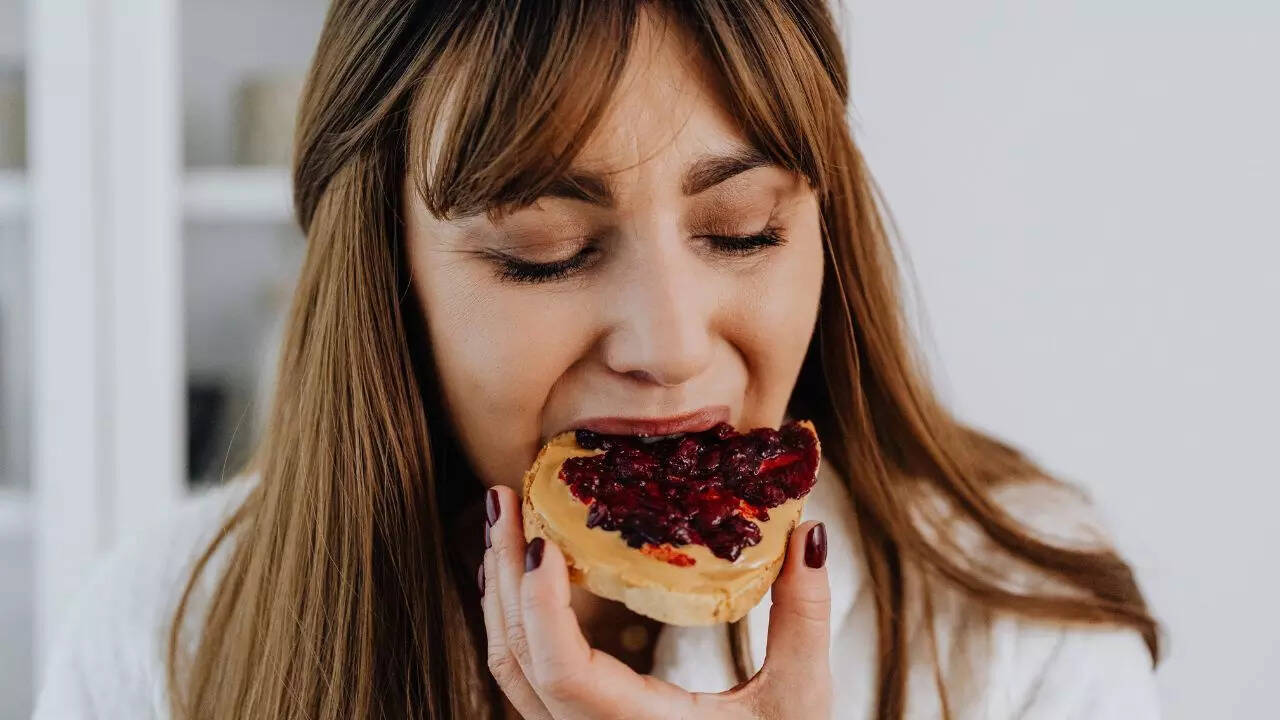Just because something looks healthy or has a “low-fat” or “whole grain” label doesn’t mean it’s blood sugar-friendly. For people living with diabetes or even those who are prediabetic, this can be a dangerous trap. You grab what seems like a smart snack or a harmless meal, and next thing you know, your blood glucose levels are on a rollercoaster. The truth is, some of the most common foods we eat every day can secretly spike blood sugar levels, mess with insulin sensitivity, and leave you feeling tired, foggy, or even hangry. These aren’t your usual suspects like sweets or sodas, they’re often hiding in plain sight in your pantry or lunchbox. In this guide, we’re calling them out. Let’s break down the everyday foods that seem healthy but actually deserve a firm spot on the diabetes no-go list. Because when it comes to managing your blood sugar, knowledge (and a little label-reading) is everything.
9 everyday foods people with diabetes should avoid

White bread and maida-based items
White bread, bakery rolls, pizzas, and soft buns are all made from refined flour (maida), which acts just like sugar in your body. These carbs are stripped of fibre, so they digest fast and spike blood sugar levels almost instantly. Switch to whole grain or multigrain options that help stabilise glucose and keep you full longer.
Flavoured yogurt
Those cute packaged yoghurt cups and fruit-flavoured varieties often contain shocking amounts of added sugar, sometimes more than dessert. The ones with “fruit on the bottom” or syrup mixes are the worst offenders. Opt for plain Greek yoghurt instead and add your own berries or a pinch of cinnamon.
Fruit juices and smoothies
Whether it’s from a juice corner, breakfast buffet, or health café, even “100% natural” juice is a sugar bomb. Juicing removes fibre, leaving behind pure fructose that spikes blood sugar. Smoothies can be just as bad if they include sweetened milk, honey, or banana-heavy mixes. Whole fruits are always a safer choice.
Breakfast cereals
Those colourful boxes lining supermarket shelves and hotel breakfast counters? Many of them, even the “high fibre” ones, are loaded with sugar and refined grains. Cornflakes, granola clusters, and anything with dried fruit or honey-glaze can mess with blood sugar. Stick to plain oats, dalia, or traditional Indian breakfasts like poha and upma.
Fried snacks
Samosas, pakoras, chips, and frozen snack packs might be tempting, but they’re a triple threat: high in carbs, deep-fried in poor quality oil, and packed with salt. These can lead to glucose spikes and contribute to insulin resistance. Swap them for roasted chana, air-fried options, or homemade snack mixes.
Sugar-free sweets and biscuits
Diabetic-friendly shelves are often stocked with “sugar-free” mithai, cookies, or biscuits but many contain sugar alcohols like sorbitol or maltitol that still affect blood sugar (and can cause bloating). Just because it says “sugar-free” doesn’t mean it’s safe. Try naturally sweetened treats like dates, nuts, or DIY low-GI desserts.
Full-fat dairy
Heavy paneer curries, whole milk, and cheese-loaded dishes might be comforting, but full-fat dairy is high in saturated fat, which can worsen insulin resistance over time. Use toned or skimmed milk, lighter versions of paneer, and limit creamy dishes to the occasional cheat day.
White rice
Staple or not, white rice has a high glycaemic index and spikes blood sugar fast, especially when eaten alone. It’s common in biryanis, khichdis, and daily meals. Try mixing it with dal, sabzi, or swapping it for brown rice, quinoa, or low-GI millets like bajra and jowar.
Baked goods and desserts
Pastries, cakes, muffins, and doughnuts may be everyone’s favourite cheat, but they’re packed with sugar, refined flour, and trans fats, a total disaster for blood sugar. For sweet cravings, opt for dark chocolate in moderation, homemade almond flour bakes, or fruit-based desserts.Managing diabetes isn’t about giving up food joy, it’s about being smarter with what’s on your plate. These commonly served foods might seem harmless, but they can quietly wreak havoc on your glucose control. Swap, substitute, and savour, without spiking your sugar.Also read| Is eating curd daily not safe for your health? Ayurveda warns about the risks of overconsumption

